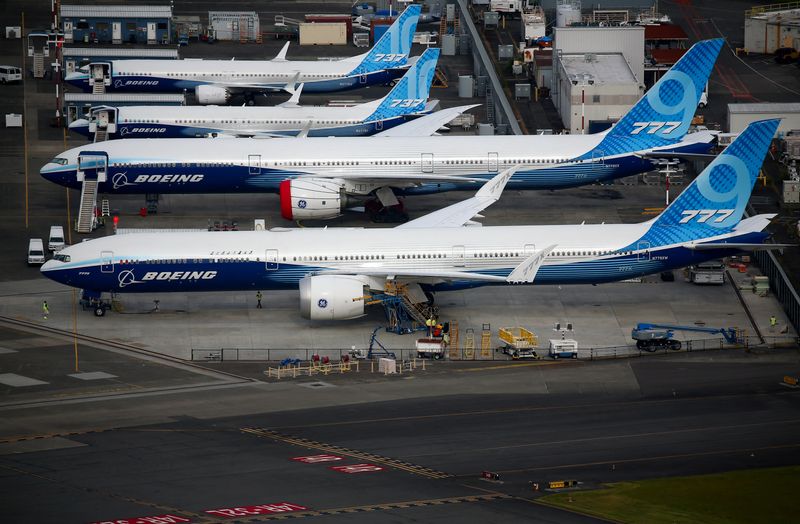By Abhijith Ganapavaram and Shivansh Tiwary
(Reuters) -Boeing Co has started delivering reworked 737 jets from inventory to customers after a manufacturing glitch forced a brief halt, the company said on Thursday, adding it will be "disciplined" in setting jet prices during the current boom.
The resumption could help the planemaker achieve the goal of 400-450 deliveries of the jet this year, a target closely watched by investors as the company looks to recover from successive crises caused by two fatal crashes and the pandemic.
"We still expect the first half of the year to be about 30 per month and the back half of about 40 per month," CFO Brian West said, referring to deliveries, at a conference organized by Wolfe Research.
Boeing (NYSE:BA) was forced to halt deliveries of some 737s earlier this year due to improperly installed brackets -- which connect the vertical tail with the fuselage made by Spirit AeroSystems (NYSE:SPR).
Some analysts had expected the halt to delay Boeing's plans for a 737 MAX production ramp up to 38 per month from 31 currently.
But West reiterated that the company expects to hit that target this year.
"I don't know exactly when, but that is in our game plan," he added.
Meanwhile, West said the top end of Boeing's $3 billion to $5 billion free cash flow forecast was a "bit pressured," in part due to supply-chain problems at its ailing defense business, even as the planemaker maintained that goal.
PRICING POWER
West said the current environment was "pretty good for price realization" and that Boeing would be "disciplined" in setting prices.
Order books at Boeing and its European rival Airbus SE (OTC:EADSY) have swelled as carriers rush to buy jets to tap into a resurgence in travel, increasing the planemakers' bargaining power.
"We just keep on selling in the future," West said.
Earlier this month, Ireland's Ryanair said it paid more per seat than in previous deals as it unveiled an order for as many as 300 Boeing jets.

Supply chain snarls, however, remain on the watch list.
Some parts of the supply chain aren't quite "where they need to be," West said.